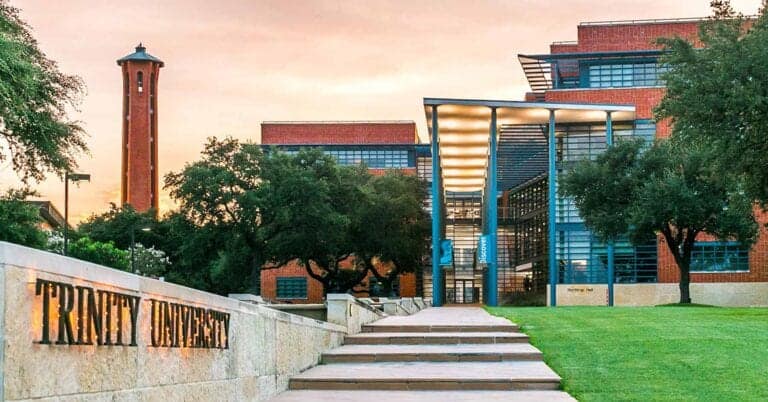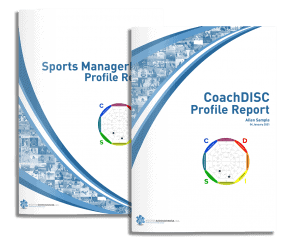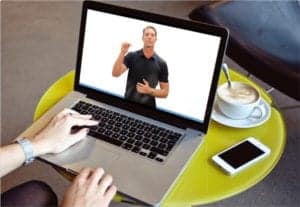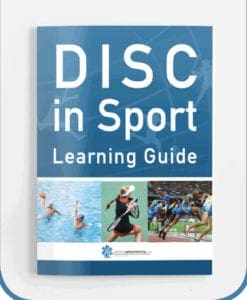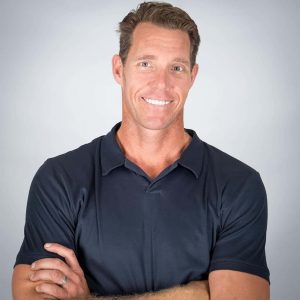When we interviewed Bryan Beigie for our recent article “Sport Studies Students Set For Success” there were just too many valuable insights into his teaching to squeeze into just one article. So, we felt we just had to share the extended Q&A here.
In your role as practicum an internship coordinator in EPA/SPS 497 Internship and Seminar, you work with students transitioning between academics and professional life. This must be exciting! What skills do you think are most relevant and useful for students to take from academics into professional life?
At John Carroll University, our Exercise Science and Sport Studies Department is grounded in the Jesuit Tradition. A Jesuit education calls us to make the world a better place by being “men and women for and with others.” Students in our department go on to become Physical Therapists, Occupational Therapists, Athletic Trainers, Strength and Conditioning Coaches, Nutritionists, Nurses, Chiropractors, Sport Coaches, Athletic Directors, as well as Careers on the business side of sport. Truly, our department is a service industry gateway major. The single most important skill our students can take from our academic process into the professional industry is to recognize their job is to serve others. One of the ways every student who majors in Exercise Science and Sport Studies at JCU can exemplify this is developing tremendous communication skills, being an active listener, learning their clients’ goals, and meeting those clients/patients/players, etc. where their shoes are.
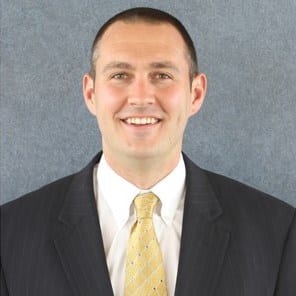
There’s a general consensus between your former students that; you support students who are prepared to do the work, you facilitate professional connections for your students and most importantly, you are engaging. How do you create the level of engagement in your students?
The best way to engage each student is to show a genuine interest in who they are, gain an understanding of what their professional goals are, and provide insight and advice and how they can tangibly achieve those goals. In Jesuit education there is a term called “Cura Personalis”…Care for the whole person, care for the individual. It is not my job to simply push content knowledge onto students’ plates from them to demonstrate an understanding of the information. Rather, it is my job to understand that each student is unique in the journey they wish to pursue. By treating every student as an individual, there is an opportunity to provide an meaningful education experience through content knowledge, application of acquired skills, as well as the demonstrating the necessary dispositions to be successful in the career of their choice.
Your students also comment that you care about them. Why? And, what does that look like in daily life?
As an undergraduate student, I transferred to John Carroll University during an exceedingly difficult time in my personal life. The Priests, Faculty, and Staff at JCU during my time could not have laid a better foundation of what it means to be loving. There is a zero percent chance I am the professional and person I am today without Fr. Casey Bukala, Fr. William Bichl, Dr. Kathleen Manning, Dr. Ron Dolciato, Dr. Michael Loovis, and Coaches Regis Scafe, Joe Keough, and Jesse Ackerman. To have the opportunity to return to your Alma Mater as an educator is indeed divine intervention. I consider everyday a blessing and a challenge to provide the same care and compassion that I was afforded.
Does being a former student-athlete at JCU yourself create a greater connection between you and your students?
I do believe that being able to connect with the students in our department, especially the student-athletes, on such a firsthand personal level has been an irreplaceable advantage. I believe that students hear certain sermons continuously from faculty about what is necessary to be successful. I have the chance to begin that message with “I understand the similar obstacles as well as opportunities you all are facing.” I believe young people are looking for those who can assist them in navigating through the unforeseen situations. Being a college student-athlete is hard, especially a Division III student-athlete in an athletic department with national championship aspirations. I can see when they are feeling overwhelmed, and when they are achieving new goals across the spectrum of their campus lives, because I walked those steps with them 15 years ago.
You have coached football and basketball at a high school and University level, how does your background in coaching influence your work with students in your current role?
I am a big fan of the United States Service Academies Football Programs. I believe it is The Naval Academy that has a slogan, “INAM” – it’s not about me. In coaching, we are constantly striving to get young people to buy into this concept. We want young adults to realize the importance of setting individual goals second to those of the program, team, organization. I believe that creating that environment for myself, personally, in the class room is critical in achieving course outcomes. For example, it does not matter that I have a passion for football and basketball. It would be easy for me to provide endless examples illustrating emotional intelligence through references to Coach K, Tony Dungy, and Brad Stevens. However, the courses I teach have students who love baseball and they want to hear about Terry Francona. There are aspiring nurses and therapists seated as well. They need to learn about a bed side manner story to better grasp the concept. Reaching “team/class goals” while putting aside my personal passion is critical. Being a coach has helped me to focus on that skill.
What advice would you give to students making the transition to professional life?
My best advice would be once you enter the profession, that is when the education truly begins. Be open to growth, and challenge all the assumptions you thought you knew. Allow each person you encounter the opportunity to further shape who you will be as a professional in whatever field you pursue. Additionally, do not be afraid to follow your passions, no matter where they lead you. Upon graduation, you are looking for the next step, not the last step. If experiences guide you down a different path than you first envisioned; do not be afraid to follow what your heart says.
What are the key reasons a student will choose your program and/or class (EPA/SPS 497)?
At John Carroll University, we are not a preprofessional program. Borrowing another Jesuit education term, we are a Formation program. We are designed to help each student develop the content knowledge, application skills, and professional dispositions necessary for them to enter a career of their choosing. We take an individual approach to our class room experience, experiential learning opportunities, as well as our academic advising and professional development. Each student is encouraged to follow the path they feel will be best suited for them to lead a life of service toward others.
What is the best feedback you receive from your students about their experience in your classes?
Some of the best feedback I can receive from a student is that I am prepared, I am challenging, and above all I care about each students’ success.
What do you like most about teaching this class?
The students. John Carroll University is blessed to have some of the most talented, brightest, driven, highest character students in the country. To be able to work with these young men and women and see so many of them achieve the goals they set out for themselves as freshmen is remarkable. I believe I live out my Jesuit mission as they go forth into the world and serve others.
What do you like / most enjoy about your role at the university?
What I like most about the role I am in at the university is that I get to work with all levels of students. I teach an introductory Foundations course as well as a senior level capstone Internship course. I get to work personally with both exercise science and sport studies students. I get to deliver content knowledge, but I also get to discuss the exciting topics of career discernment and professional development. I get to provide guest speakers and tangible advice for our students through all the various professional networks I have been able to develop throughout the years.
What was one thing you changed in your program or your teaching from last year that has made a significant difference?
One of the biggest changes I have made in my teaching and administering experiential learning is that I have come to realize it is ok to make mistakes, and things do not have to go perfectly. In coaching, mistakes are unacceptable. A coach does not accept mistakes from players, and certainly a coach does not accept mistakes from themselves. However, sometimes a mistake can be a tremendous growth opportunity for a student. In the past, if I noticed a student was not acting or performing up to expectation, especially with professional behavior in the industry, I would step in and fix that situation because I did not want the appearance that I did not have my responsibilities under control. However, recently I have seen that by allowing the student to realize their error and accept personal responsibility for that error, an opportunity for lasting education was created. Often times that error led to greater growth than any guided success.
How has working with Athlete Assessments contributed to your class?
The Exercise Science and Sport Studies Department at John Carroll University could not be any more grateful to Athlete Assessments for several reasons. First, Athlete Assessments offers our students the opportunity to learn about who they are, and who they might be in their profession using a unique tool to many undergraduates. Often, we see students take personality and self-interest assessments to learn about the individual. Athlete Assessments, however, provides behavioral analysis. Students can use this tool and workbook far past graduation as a tool for continuous reflection and growth. Additionally, prior to the Covid-19 pandemic shut down, Zoom technology was not often utilized in our department. The benefit of Zoom has allowed our students the opportunity to learn from experts in this industry, quite literally, an entire world away. For many students, this was exciting and novel. The Zoom discussion provided another means of professional development. Also, Athlete Assessments helped reinforce the concept that our industry is about people, first and foremost. Quite seamlessly, Liz Masen and Bo Hanson were able to address students from as many as 10 different career aspirations. However, the information they provided and examples they gave demonstrated how each different career still shared the common thread of communication with different populations as key to achieve goals.
Recommended Articles
Coaching, teaching, innovation, a flipped classroom, students with a growth focus and all in the context of sport at a University that made the Forbes list of the top 100 universities in the USA.
Leadership is not a role it’s an attitude; a state of mind, a way of behaving that inspires people around you to follow, hold similar beliefs, live similar values and work towards common goals.
Writing ranked #1 in the world next to your name is a rare honor. Writing it 2 years in a row means that you understand how to get it right, you’re an innovator and you stay at the forefront of your field. Loughborough University, the #1 University in the World for Sports Related Subjects, gets teaching the business of sport right.


